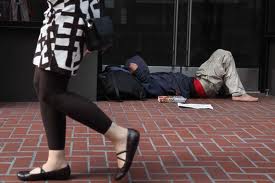Drug-Free Communities (DFC) Support Program-Competing Continuation (Year 6)
The Drug-Free Communities (DFC) Support Program was created by the Drug-Free Communities Act of 1997 (Public Law 105-20).
The Executive Office of the President, Office of National Drug Control Policy (ONDCP), and the Department of Health and Human Services (HHS), Centers for Disease Control and Prevention (CDC), National Center for Injury Prevention and Control (NCIPC) are accepting applications for Fiscal Year (FY) 2024 Drug-Free Communities (DFC) Support Program Grants.
The purpose of the DFC Support Program is to establish and strengthen collaborations to support the efforts of community coalitions working to prevent and reduce substance use among youth.By statute, the DFC Support Program has two goals:
1) Establish and strengthen the collaboration among communities, public and private non-profit agencies, as well as federal, state, local, and tribal governments to support the efforts of community coalitions working to prevent and reduce substance use among youth (individuals 18 years of age and younger).2) Reduce substance use among youth and, over time, reduce substance use among adults by addressing the factors in a community that increases the risk of substance use and promoting the factors that minimize the risk of substance use.This funding opportunity will fund applicants who have concluded the first (Year 1 – 5) funding cycle or have experienced a lapse in funding.
The Executive Office of the President, Office of National Drug Control Policy (ONDCP), and the Department of Health and Human Services (HHS), Centers for Disease Control and Prevention (CDC), National Center for Injury Prevention and Control (NCIPC) are accepting applications for Fiscal Year (FY) 2024 Drug-Free Communities (DFC) Support Program Grants.
The purpose of the DFC Support Program is to establish and strengthen collaborations to support the efforts of community coalitions working to prevent and reduce substance use among youth.By statute, the DFC Support Program has two goals:
1) Establish and strengthen the collaboration among communities, public and private non-profit agencies, as well as federal, state, local, and tribal governments to support the efforts of community coalitions working to prevent and reduce substance use among youth (individuals 18 years of age and younger).2) Reduce substance use among youth and, over time, reduce substance use among adults by addressing the factors in a community that increases the risk of substance use and promoting the factors that minimize the risk of substance use.This funding opportunity will fund applicants who have concluded the first (Year 1 – 5) funding cycle or have experienced a lapse in funding.
Agency: Department of Health and Human Services
Office: Centers for Disease Control - NCIPC
Estimated Funding: $62,500,000
Office: Centers for Disease Control - NCIPC
Estimated Funding: $62,500,000
Who's Eligible
Obtain Full Opportunity Text:
Community Forest Program website
Additional Information of Eligibility:
Eligibility Category: Nonprofits having a 501(c)(3) status with the IRS, other than institutions of higher educations.A DFC legal applicant (an organization applying on behalf of a coalition, the coalition, or the applicant coalition) must reside within the United States and/or the U. S. territories.State gov’ts or their bona fide agents (includes the District of Columbia)Local gov’ts or their bona fide agentsTerritorial gov’ts or their bona fide agents in the Commonwealth of PR, the VI, the Commonwealth of the N.
Marianna Islands, American Samoa, Guam, the Federated States of Micronesia, the Republic of the Marshall Islands, and the Republic of PalauState controlled institutions of higher educationAmerican Indian or Alaska Native tribal gov’ts (federally recognized or state-recognized)Non-gov’t Orgs: American Indian or Alaska native tribally designated orgsAdditional Information on Eligibility:Eligible applicants are community-based coalitions addressing youth substance use that have previously received a DFC grant (Year 1–5).
In addition, community-based coalitions that had previously received a DFC grant but have experienced a lapse in funding or have concluded the first five-year funding cycle and are applying for a second five-year funding cycle are eligible for this funding.Applicants must be a nonprofit (as defined by the IRS as a 501(c) organization); or an entity that the Administrator determines to be appropriate; or part of, or is associated with an established legally recognized domestic, public or private nonprofits organization.For example, state and local governments, federally recognized tribes, state-recognized tribes, urban Indian organizations (as defined in Pub.
L.
No.
94-437), public or private universities and colleges, professional associations, voluntary organizations, self-help groups, consumer and provider services-oriented constituency groups, community- and faith-based organizations, and tribal organizations.
(Pub.
L.
No.
114-198 Sec 103).For the purposes of this NOFO and the DFC Support Program, a coalition is defined as a community-based formal arrangement for cooperation and collaboration among groups or sectors of a community in which each group retains its identity, but all agree to work together toward a common goal of building a safe, healthy, and drug-free community.
Full Opportunity Web Address:
https://www.fs.usda.gov/managing-land/private-land/community-forest/program
Contact:
Agency Email Description:
dfc_nofo@cdc.gov
Agency Email:
Date Posted:
2024-02-15
Application Due Date:
Archive Date:
2024-05-17
Social Entrepreneurship
Spotlight
When it Comes to Social Enterprises, Failure is the Best Platform for Innovation

In the world of social enterprises, failure is a cringe-worthy moment nobody wants to talk about. But, social entrepreneurs can benefit from their failures.

